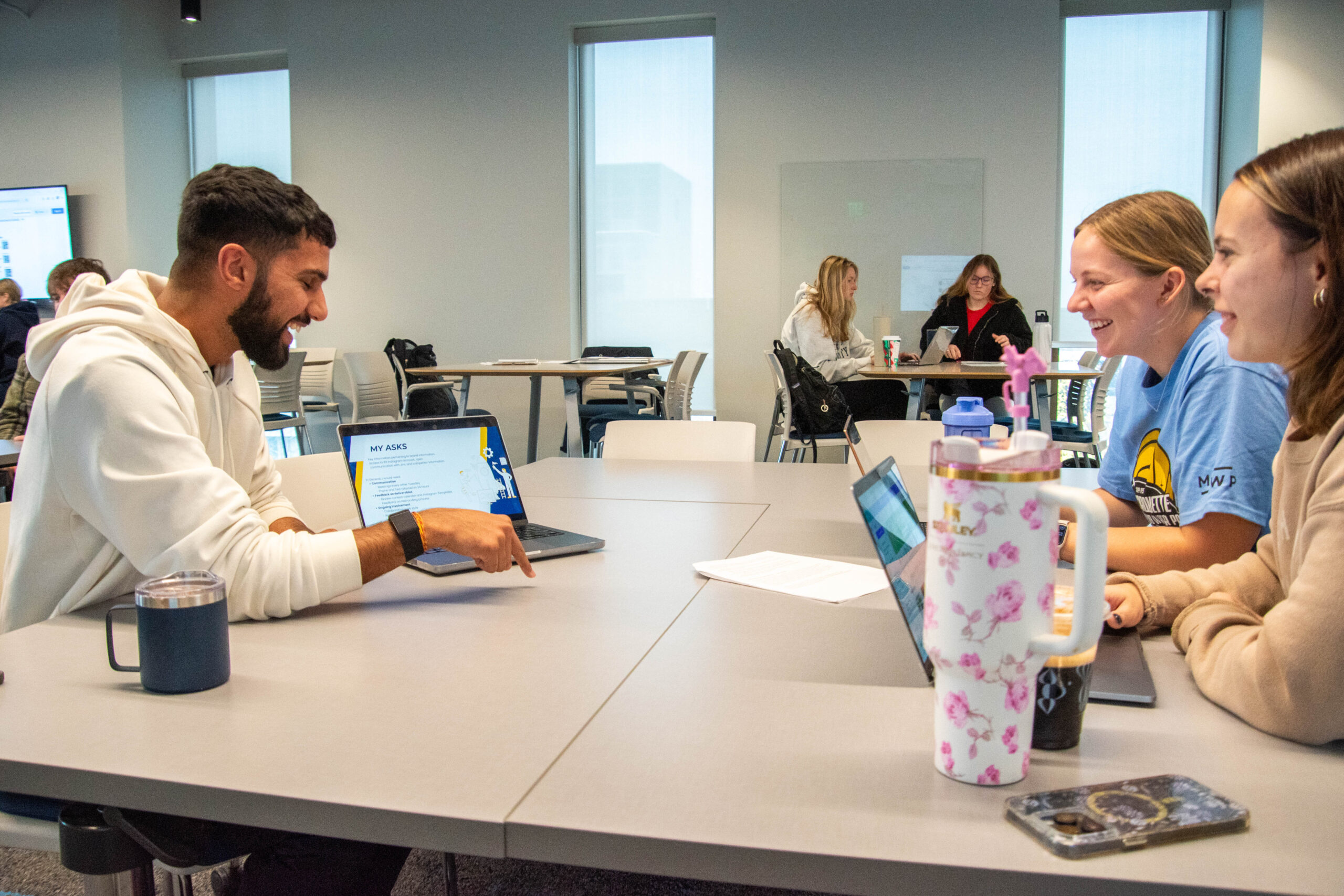Bussiness
Business classes partner with charity to bring clean water to towns in Guatemala | Marquette Today

It can be hard for a Marquette Business student to imagine what life is like in Quiche, Guatemala. In Milwaukee, getting water takes a couple steps, not a couple hours. Three thousand dollars is a regular paycheck, not a year’s salary. Internet, banking, basic manufacturing, even concrete floors — all things are at once taken for granted in America and luxuries in the mountainous regions of Guatemala.
“We are thinking a lot more about what a business’ role is in the world,” says Cynthia Baricos, a student in the Executive MBA program who is in one of Milovic’s classes. “It’s all about asking what an organization should be, what it should do and how it should conduct itself. The answers are very different across geographies.”
Students in Dr. Alex Milovic’s marketing classes have lots of time to reflect on these questions when doing work for Global Partners: Running Waters, a Milwaukee-based charity that raises money to deliver potable water to communities in Guatemala. To date, GPRW has completed over 150 water projects that have improved life for more than 300,000 people.
Milovic, an associate professor of practice in marketing, has two classes completing project-based assignments for GPRW: one at the undergraduate level and one at the EMBA level. These students are c developing social media plans, identifying fundraising prospects, conducting website audits and refining pitches to potential donors. This service learning combines classroom instruction with practical experience.
“We talk all the time at Marquette about being men and women in service to others and that’s what service learning is all about. Service learning is the heart of Marquette University,” Milovic says.
According to Director of Service Learning Kim Bohat, 800 to 1,000 students each semester engage in some kind of service-based class. Most of them are placed directly with an organization, which means volunteering at a particular place for two hours each week. Milovic’s class is different. After representatives of GPRW explain what the organization does and what it needs, students work independently to come up with a strategic plan that addresses the problem from a marketing perspective.
“Outside of having a child and getting married, the EMBA program has been one of the most transformative experiences of my life.”
Cynthia Baricos, EMBA student
Transparency from the partner organization and open-mindedness from the faculty member are crucial to making this kind of service-learning work.
“Alex didn’t come up with a bunch of preconceived notions about what the project was going to be; he worked with the partner and both sides were very honest about desired outcomes and needs,” Bohat says.
“Willingness to share information, stories and their journey, as well as a willingness to communicate on a regular basis, is part of what makes a good partner,” Milovic says. “GPRW is the perfect example of a firm that should be working with Marquette. They have great leadership and are helping people to the extreme.”
In Baricos’ case, she analyzed GPRW’s social media presence to see where they could do better to reach potential donors. The charity has a very small marketing team and would not usually pay for consulting services; the report Baricos prepared was not something GPRW would have been likely to get elsewhere. That effort was part of a class-wide project to understand what GPRW’s value proposition was, then optimize its business to ensure there were no wasted opportunities when it came to delivering on that vision.
The downstream effects of the students’ work is staggering. According to Director of Applied Global Business Learning Dr. Heather Kohls, who has partnered extensively with nonprofits based in Central America, women in rural villages spend between eight and 12 hours every week gathering clean water. If these villagers have a local water source, the women have time to produce excess food or bring in money through entrepreneurship. Locals can mix concrete to put floors in their homes, drastically reducing the rate of soil borne illnesses.
Kohls has seen firsthand how just a little bit of investment in these communities can pay massive dividends.
“These women all learned handicrafts from their families; it’s really amazing how quickly they set up businesses and become the economic engine of their community,” Kohls says.
Service learning is grounded in the Jesuit cycle of critical reflection, action and change, exposing hundreds of students every year to experiences that are essential for a well-rounded Marquette education. It’s why Milovic is hoping to eventually introduce a service-learning component to all of his classes, and why Baricos feels that her experience working with GPRW was a memorable one.
“Outside of having a child and getting married, the EMBA program has been one of the most transformative experiences of my life; opportunities to do this type of work are the reason why,” Baricos says.










